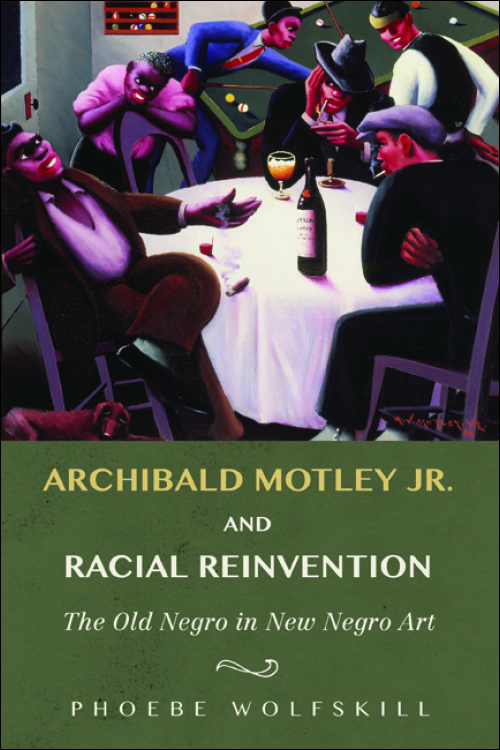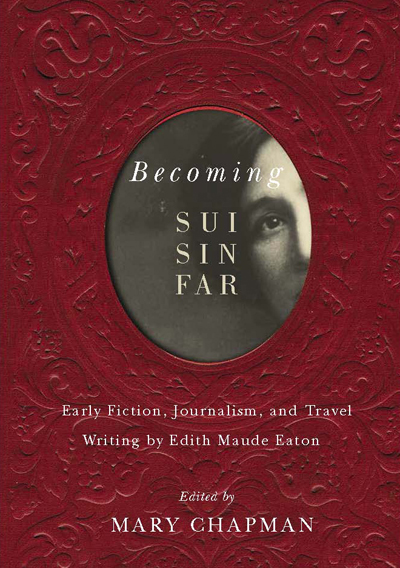Edith Eaton’s Expanding Oeuvre
American Periodicals: A Journal of History & Criticism
Volume 27, Number 1, 2017
pages 6-10
Mary Chapman, Professor of English
University of British Columbia, Vancouver, British Columbia, Canada
Since the early 1980s, when S. E. Solberg published a short checklist of twenty-two works of fiction and journalism by Chinese American author Sui Sin Far (Edith Eaton), our knowledge of her oeuvre has grown considerably. By 2007, through the efforts of Annette White-Parks and Amy Ling, as well as Dominika Ferens and Martha Cutter, Eaton’s oeuvre included about one hundred works of fiction, poetry, and journalism, many of which addressed the experiences of diasporic Chinese in North America. In the past ten years, I have discovered more than one hundred fifty texts by Eaton, some of which are collected in Becoming Sui Sin Far: Early Fiction, Journalism and Travel Writing by Edith Maude Eaton.1 Eaton’s expanded oeuvre demonstrates that she was a much more complicated author than formerly believed, a writer who worked in a range of genres and styles, addressed numerous themes beyond the Chinese diaspora, and published in a wide assortment of turn-of-the-century magazines and newspapers in three national contexts: the United States, Canada, and Jamaica.
To locate uncollected works by Eaton, I took inspiration from the impressive detective work of White-Parks and Diana Birchall,2 who wrote biographies of Eaton and her sister Winnifred (Onoto Watanna), respectively, as well as from Ferens’s recovery of Eaton’s Jamaican journalism. To begin, I developed a list of periodicals and newspapers in which Eaton published or to which she submitted work, based on information about twenty-four periodicals provided in the acknowledgments of her only book, Mrs. Spring Fragrance (1912):
I have to thank the Editors of The Independent, Out West, Hampton’s, The Century, Delineator, Ladies’ Home Journal, Designer, New Idea, Short Stories, Traveler, Good Housekeeping, Housekeeper, Gentlewoman, New York Evening Post, Holland’s, Little Folks, American Motherhood, New England, Youth’s Companion, Montreal Witness, Children’s, Overland, Sunset, and Westerner magazines, who were kind enough to care for my children when I sent them out into the world, for permitting the dear ones to return to me to be grouped together within this volume.3
Inspired by Jean Lee Cole’s recovery of periodical works by Winnifred Eaton, I also scoured Eaton’s autobiographical writings, correspondence with editors, and reviews of and introductions to her periodical publications for any mention of publications to which she may have submitted work.4 Eaton’s reference in “Leaves from the Mental Portfolio of an Eurasian” to “local [Montreal] papers” that gave her a “number of assignments, including most of the local Chinese reporting,”5 for example, prompted me to consult late 1880s and 1890s issues of the Montreal Star, Montreal Witness, and Montreal Gazette. In “A Word from Miss Eaton” in the Westerner, Eaton mentions publishing in the Seattle Post-Intelligencer.6 The literary editor of the Westerner also notes in his preamble to “A Word from Sui Sin Far” that Eaton’s works had appeared in Woman’s Home Companion.7 Eaton’s correspondence with Land of Sunshine editor Charles Lummis and Century editor Robert Underwood Johnson, as well as a letter that Los Angeles Express editor Samuel Clover wrote to Johnson, also mention periodicals to which Eaton submitted fiction.8 To this list of publications, I added Fly Leaf, Lotus, the Chautauquan, and the Boston Globe—publications in which White-Parks and Ling had located works by Eaton—as well as Metropolitan Magazine, Gall’s News Letter, and Leslie’s Weekly—periodicals in which Cutter, Ferens, and June Howard had located additional texts.9
I then searched as many issues of these publications as possible for relevant years, in either digitized or paper form. Given the brevity of Eaton’s career (twenty-six years between 1888 and her death in 1914), looking through bound volumes or tables of contents for key years of nondigitized (and sometimes short-lived) monthly magazines was not arduous. Comprehensive searches of nondigitized daily newspapers were more challenging, however, so I searched the Los Angeles Express, Montreal Star, Montreal Gazette, Montreal Witness, Chicago Evening Post, Seattle Post-Intelligencer, and New York Evening Post for only particular periods during which Eaton was likely to…





